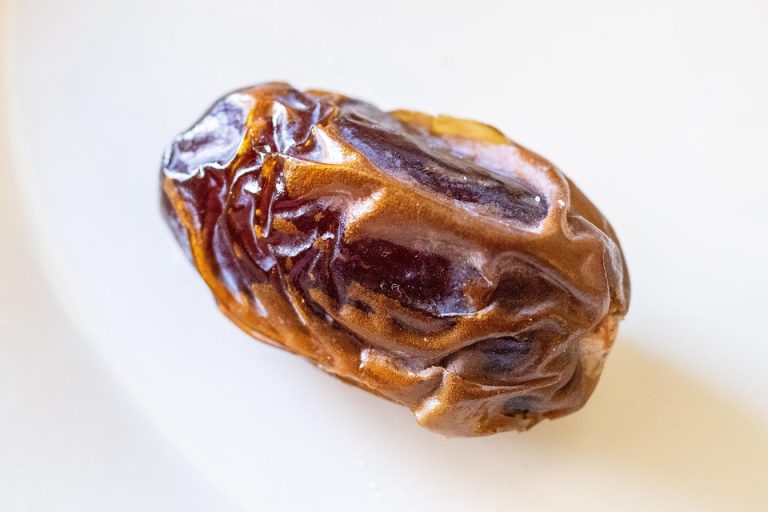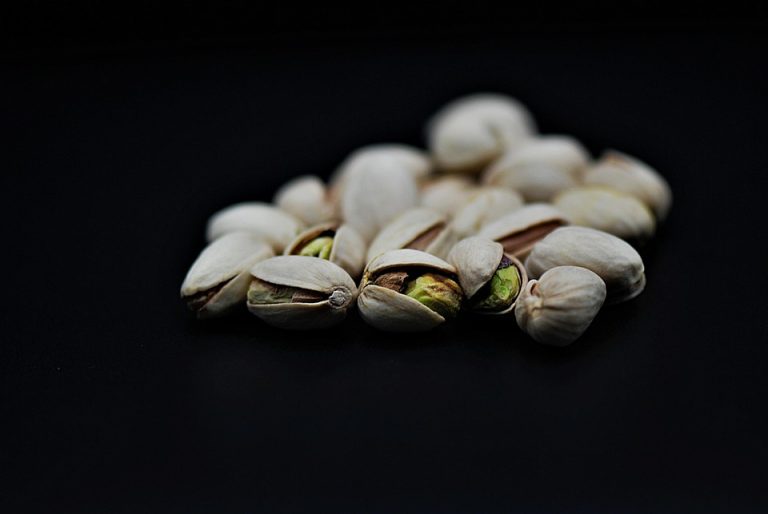Midday slump meets your favorite mug of freshly brewed coffee. A familiar scene, right? Just as that warm sip can ignite your energy, another surprising fruit might just be an unexpected ally in your quest for better health: strawberries. Often celebrated for their vibrant flavor and vibrant red color, strawberries possess benefits that extend beyond mere taste. It’s remarkable how these humble berries play a role in supporting bone health, an often overlooked aspect of our overall well-being.
In this article, we will explore five surprising benefits of strawberries for bone health, backed by research that highlights their potential to strengthen and protect your skeletal system. The following insights might just inspire you to add a handful to your daily diet.
Contents
1. Rich in Vitamin C: The Bone-Building Vitamin
Strawberries are a delightful source of vitamin C, which is crucial not only for immune support but also for bone health. Vitamin C plays a pivotal role in the synthesis of collagen, a primary protein found in bones. Collagen provides structure and strength, making it essential for maintaining healthy bone density.
A study published in the American Journal of Clinical Nutrition found that participants with higher vitamin C intake demonstrated greater bone density compared to those with lower intakes (Huang et al., 2020). This research underscores the importance of vitamin C-rich foods like strawberries in bolstering skeletal strength.
However, it’s essential to consume vitamin C through various sources—while strawberries are an excellent choice, a balanced diet featuring citrus fruits, bell peppers, and leafy greens can help you meet daily needs.
2. Anti-inflammatory Properties
Chronic inflammation can contribute to a range of health issues, including weakened bones. Strawberries are packed with antioxidants, such as anthocyanins, which give them their rich red hue. These antioxidants can help combat inflammation in the body.
Research published in the Journal of Nutritional Biochemistry highlighted that the antioxidants found in strawberries significantly reduced inflammatory markers in participants (Chacón-Vera et al., 2021). This is noteworthy because inflammation is often linked to bone loss over time.
Incorporating strawberries into your diet may serve as a simple strategy to help modulate inflammation. Consider adding them to smoothies or salads for a flavorful boost.
3. Support for Calcium Absorption
Calcium is often touted as the cornerstone of bone health, but its absorption requires additional dietary components. Vitamin K is one such nutrient that is essential for calcium regulation in bones. Interestingly, strawberries contain a form of vitamin K that may aid in calcium absorption, ensuring that you get the most out of your dairy or leafy green intake.
In a comprehensive review in the British Journal of Nutrition, researchers noted that vitamin K is crucial for bone mineralization and that adequate intake may reduce fracture risk (Wehrli, 2021). While strawberries alone should not be your primary source of calcium or vitamin K, their inclusion can help create a more balanced nutritional profile.
4. Modulation of Bone Resorption
Bone resorption is a natural process where bone is broken down to release minerals back into the bloodstream. However, excessive resorption can lead to conditions like osteoporosis. The flavonoids found in strawberries, particularly quercetin, have been shown to inhibit osteoclasts—the cells responsible for bone resorption.
A study in the Nutrition Journal demonstrated that quercetin could play a role in improving bone health by modifying the activity of osteoclasts, thus potentially limiting bone loss (Choi et al., 2019). While strawberries alone may not be a silver bullet, they certainly contribute to a diet that favors bone preservation.
5. Nutrient Density and Caloric Control
Maintaining a healthy weight is important for overall bone health. Excess body weight can put strain on the skeletal system, increasing the risk of injuries and bone-related conditions. Strawberries are low in calories and high in fiber, making them an excellent snack option for weight control.
According to a study published in the Journal of Obesity (Pérez-Jiménez et al., 2022), increasing fruit and vegetable intake, including strawberries, was associated with better weight management outcomes. Incorporating strawberries into your diet provides satisfaction without an overwhelming caloric load.
FAQs about Strawberries and Bone Health
1. How many strawberries should I eat for bone health?
While there’s no specific recommendation, a serving of about one cup of strawberries a day can provide valuable nutrients that support bone health.
2. Can I rely solely on strawberries for vitamin C and other nutrients?
Strawberries are a great source of vitamin C and other beneficial nutrients, but they should be part of a diverse diet that includes various fruits and vegetables to meet all your nutritional needs.
3. Are frozen strawberries just as beneficial as fresh ones?
Yes, frozen strawberries can retain most of their nutrients. They are often frozen at peak ripeness, making them a convenient option when fresh strawberries are not in season.
4. Are there any risks associated with consuming strawberries?
Strawberries can trigger allergic reactions in some individuals, particularly those with pollen allergies. Moreover, make sure to wash them thoroughly to remove any pesticides or contaminants.
Conclusion: A Berry Simple Choice for Stronger Bones
Strawberries are more than just a snack—they’re a nutritional powerhouse that can play a notable role in supporting bone health. From their vitamin C content that aids in collagen synthesis to their anti-inflammatory properties, these berries can enhance your dietary efforts to maintain strong bones.
Like that moment of joy when you take a bite of a ripe strawberry, the benefits extend beyond pleasure, contributing to your long-term well-being. As you savor this delicious fruit, remember that nutritional balance and diversity in your diet are key. Consider integrating strawberries into smoothies, salads, or as a standalone snack, and embrace their surprising benefits for your bones.
References
-
Huang, Z., et al. (2020). “Vitamin C Intake and Bone Density: Findings from the NHANES.” American Journal of Clinical Nutrition. URL: https://academic.oup.com/ajcn/article/111/3/450/5862849
-
Chacón-Vera, J., et al. (2021). “Strawberry extract decreases inflammation markers in overweight men.” Journal of Nutritional Biochemistry. URL: https://www.sciencedirect.com/science/article/pii/S095528632100244X
-
Wehrli, S. (2021). “Vitamin K and Bone Health: A review.” British Journal of Nutrition. URL: https://www.cambridge.org/core/journals/british-journal-of-nutrition/article/vitamin-k-and-bone-health-a-review/8521A65ED9F131B19C2A586B12E979B6
-
Choi, H. K., et al. (2019). “Effects of Quercetin on Bone Health.” Nutrition Journal. URL: https://nutritionj.biomedcentral.com/articles/10.1186/s12937-019-0421-2
-
Pérez-Jiménez, J., et al. (2022). “Fruit, vegetable intake and obesity: what the evidence shows.” Journal of Obesity. URL: https://www.hindawi.com/journals/jobes/2022/8451945/
Get Your FREE Natural Health Guide!
Subscribe now and receive our exclusive ebook packed with natural health tips, practical wellness advice, and easy lifestyle changes, delivered straight to your inbox.




